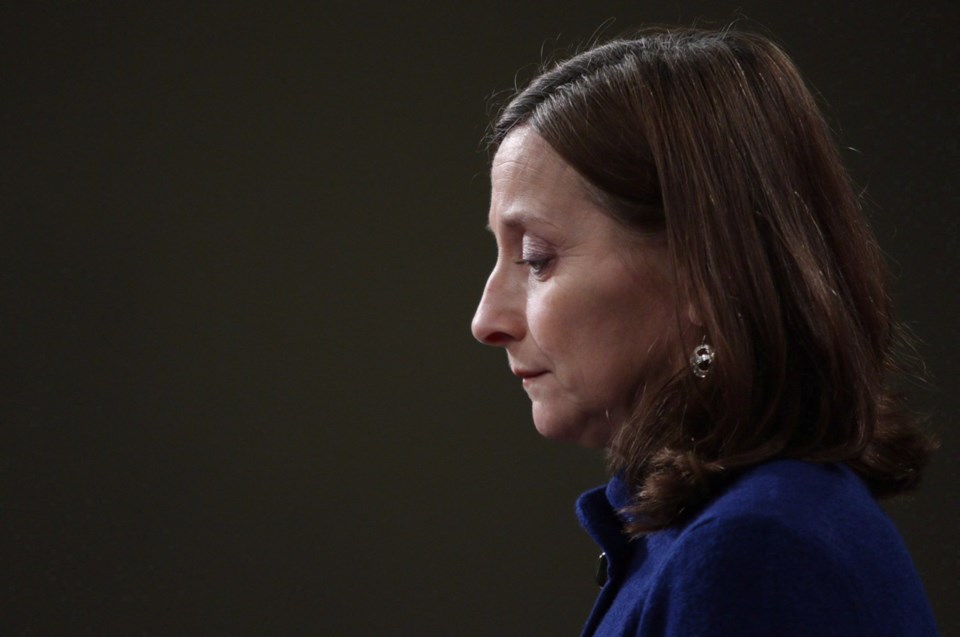Hundreds of people died during B.C.’s historic heat wave, most of them seniors living alone in private homes, B.C.’s chief coroner said.
At least 486 sudden and unexpected deaths were reported over the past five days, Lisa Lapointe said Wednesday — well above the 165 such deaths that would normally occur in the province over a five-day period. An update on the numbers is expected today.
“We suspect that many of the deaths are attributable to the heat — we won’t with certainty know an exact number until we have all our data entered and we’ve done the analysis — but, absolutely, we do know that many people, have been found in residences that are very, very warm and not ventilated,” Lapointe said. A preliminary analysis should be ready in the next two to three months.
Public Safety Minister Mike Farnworth said the report “will be crucial in how we move forward” with emergency planning “if and when an event happens like this again.”
Anecdotally, the deaths were among older people with underlying health conditions who lived alone in private residences such as condos, said Lapointe. In such cases, there was no one to account for their final hours.
There have been about three heat-related deaths in the past five years, according to the province. “We have not seen extreme heat events in B.C., certainly not like this,” Lapointe said.
A death is recorded as “heat-related” if excessive heat is believed to have contributed to the person’s death — even if they have underlying health conditions, she said.
Coroners have been working around the clock with first responders and in some cases have been delayed in responding to reported deaths. More resources have been allocated, to bring down the wait times, Lapointe said.
Dr. Ben Williams, chief medical officer of Island Health, couldn’t say how many sudden deaths on the Island were suspected to be related to heat, but he reported a “substantial number of heat-related visits to emergency departments.”
People with underlying health conditions, particularly heart conditions and blood pressure problems, will struggle in extreme heat, he said.
“But it’s generally as we get older, and we become more frail, we have less capacity to deal with changes in the environment and so we do see that the very young and the very old, and people with chronic health conditions have significant challenges in extreme heat.”
The coroners service has participated in earthquake and marine disaster exercises, but “having experienced this event, over the last few days, we will all be looking at what planning do we have in place for extreme heat events in terms of response as agencies, but also in terms of response for our family and our employees,” said Lapointe.
“This is definitely an opportunity for everybody in the province to take a look at what do we need to do differently,” she said.
Asked what more the province could have done to prevent heat-related deaths, Farnworth said the province has — since June 25 — supported local communities and First Nations through Emergency Management B.C. to ensure cooling centres opened and there was transportation to and from them, and staff wages and overtime were covered.
In Oregon, the death toll from the heat reached 79, the Oregon state medical examiner said Thursday. Most occurred in Multnomah County, which encompasses Portland.
Washington state authorities linked more than 20 deaths to the heat, but they said that number was likely to rise.
Seattle, Portland and other U.S. cities broke all-time heat records, with temperatures in some places reaching above 46 C.
— With a file from The Associated Press



